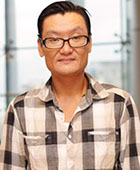Dr. Hannah TSE
Research Officer
Department of Psychology
The University of Hong Kong
Dr. Hannah Tse is a Research Officer of the Jockey Club Autism Support Network in the Department of Psychology at the University of Hong Kong. She is interested in social development, particularly peer acceptance for children with special education needs (SEN). She has investigated how children develop and maintain friendship in kindergarten settings with scarce free-play time, and how atypical behaviors among children with SEN may predict peer rejection in primary school.
When free-play time is scarce in kindergarten:
What predicts peer acceptance and friendship?

-crop-u4333.jpg)
Peer acceptance and friendship can predict children’s well-being and developmental outcomes. Social behaviors during free-play constitute one of the best predictors for peer acceptance. Nowadays some kindergartens in Hong Kong place great emphasis on academic achievement, making free-play time scarce. How do children interact in such kindergartens? Can their social interactions nonetheless predict peer acceptance status?
In prior studies, peer interaction among young children was often observed during free play, but this was not feasible in most local 3-year half-day kindergarten in Hong Kong due to the scarcity of free play. My research team has observed children’s peer-directed social behaviors whenever they were not under close teacher supervision. These social behaviors, including play, communication, laughter, humor, and friendly physical contact (e.g., holding hands), were observed in K1 and K2.
Overall, even when free-play time was very limited (e.g., 15 minutes per half-day session), children managed to interact with their classmates, and their peer interaction in kindergarten early on (i.e., K1 and K2) did predict peer acceptance and friendship later on (i.e., K2 and K3). Clear sex differences were uncovered, perhaps due to sex differences in self-regulations and sex-stereotype expectations.


